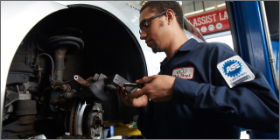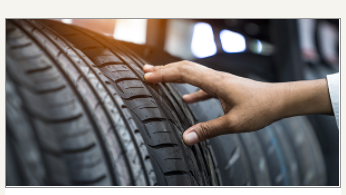Cars, like humans, require care and maintenance. One of the most fundamental services for any vehicle is an oil change. While it sounds simple on the surface, there's a lot to understand about car oil changes. This is especially true for those who own vehicles that are no longer covered by the dealer warranty.
The Role of Regular Oil Changes in Vehicle Maintenance
The smooth functioning of a car's engine hinges on the quality of its oil. More than just swapping old for new, consistent oil changes are the keystone of vehicle upkeep. Here's why:
- Engine Efficiency: Over time, dirt and particles can accumulate in the oil. This debris causes friction, which can wear down engine parts. Fresh oil reduces this friction, ensuring that your engine runs smoothly and efficiently.
- Temperature Regulation: Clean oil aids in drawing heat away from the combustion chamber, reducing the engine's overall temperature. This prevents overheating and prolongs the engine's lifespan.
- Preventing Sludge Build-up: Used oil can lead to the formation of sludge in the engine. Regular oil changes prevent this sludge accumulation, ensuring that the engine remains clean and performs optimally.
- Enhancing Mileage: Believe it or not, fresh oil can also improve your gas mileage. By reducing engine friction, your car can run more efficiently, translating to better miles per gallon.
Exploring Different Types of Engine Oil and Their Suitability
There are several types of engine oils, and it's crucial to know which one is right for your vehicle. Use Pennzoil’s oil selector to determine which is best for your application. The major categories include:
- Conventional Oil: This is the traditional engine oil derived from crude. It’s suitable for many older vehicles.
- Synthetic Oil: Produced through a synthesized process, it's chemically engineered to meet specific demands. Synthetic oils offer enhanced performance and protection compared to their conventional counterparts. These are typically more expensive but often allow for a longer duration in oil change intervals.
- Semi-Synthetic: This is a blend of conventional and synthetic oil. Synthetic blends provide some benefits of synthetic oil but at a lesser price than a full synthetic.
- High-Mileage Oil: Designed specifically for vehicles with 75,000 miles or more, high-mileage oil contains special additives to help seal potential leaks and reduce wear.
When selecting the type of oil, it's imperative to consult your vehicle's manual and follow the manufactuer’s recommendations or consult a professional oil change service.
Benefits of Professional Oil Changes: Pros & Considerations
You may be asking yourself, “Why should I opt for a professional oil change near me when I can do it myself?” Here's why:
- Expertise and Equipment: Professionals are just that. They complete oil changes on a daily basis and have the knowledge and equipment to do the job correctly. They also ensure that old oil is disposed of properly.
- Warranty Compliance: Some vehicle manufacturers may require proof of frequency of oil changes and proof of correct oil being used. This can be a hassle to keep these records.
- Time Efficient: While DIY may sound appealing, it often takes longer and can get messy. With a professional service, you’re in and out in no time.
When choosing the right service provider, ensure that the service you're opting for is reputable and disposes of old oil properly. This can easily be done by checking reviews online or asking for recommendations.
Determining Optimal Oil Change Intervals for Your Vehicle
The old rule of thumb suggested changing engine oil every 3,000 miles. But with today's advancements in both engine technology and oil composition, many vehicles can stretch those intervals much further.
Consult your vehicle’s manual for manufacturer recommendations. Factors affecting the interval include:
- Type of Oil Used: Synthetic oils generally last longer than conventional ones.
- Driving Conditions: Harsher conditions, such as stop-and-go traffic or extreme temperatures, might require more frequent changes.
The Importance of Oil Filters and How to Choose the Right One
Oil filters remove particles and contaminants from the engine oil. Over time, they can become clogged and less effective. When you get an oil change, it's essential also to replace the filter.
When choosing a filter:
- Look for Quality Brands: Well-known brands may provide better filtration and durability.
- Consider Your Driving Conditions: If you frequently drive in dusty areas or harsh conditions, you might want a high-performance filter.
Remember, a good filter can help prolong the life of your oil and your engine.
Identifying Common Signs of Engine Oil Problems and How to Address Them
Even with regular maintenance, issues can arise. It's crucial to recognize signs of oil problems early. It’s an ideal practice to check fluid levels each time you refill your gas tank. Some warning signs include:
If you notice any of these signs or require other services like transmission fluid exchange near me or fuel filter replacement, consult a professional auto service near me.
Final Takeaways on Car Oil Changes
An oil change, while basic, plays a pivotal role in the health of your car. With older vehicles no longer under dealership care, understanding the nuances can ensure longevity and optimal performance. Regular checks, recognizing signs of trouble, and consulting professionals when in doubt can go a long way in ensuring your vehicle remains in top shape. Happy driving!






